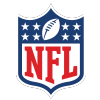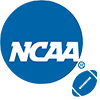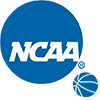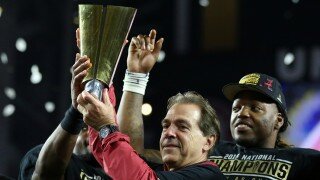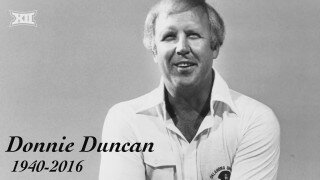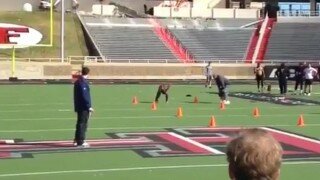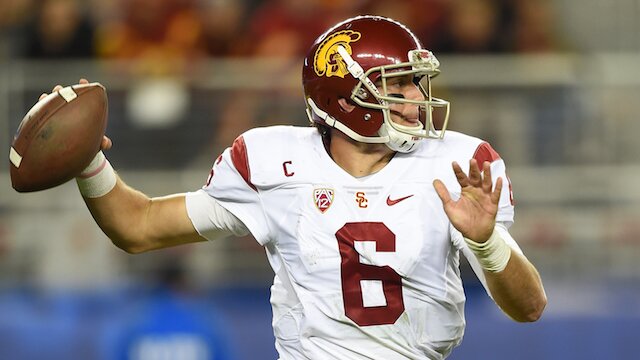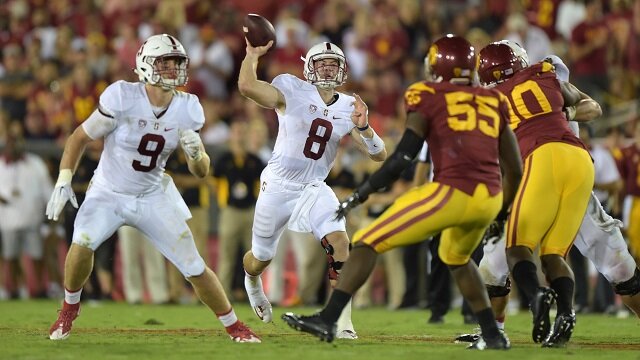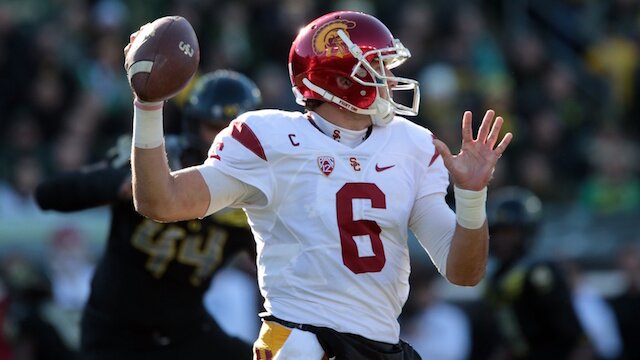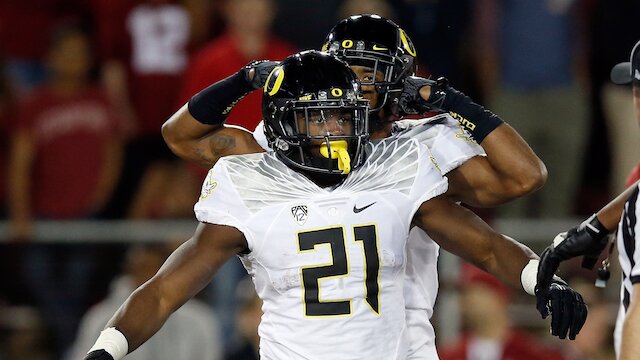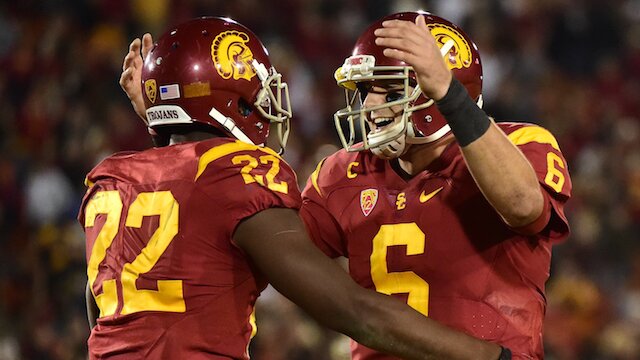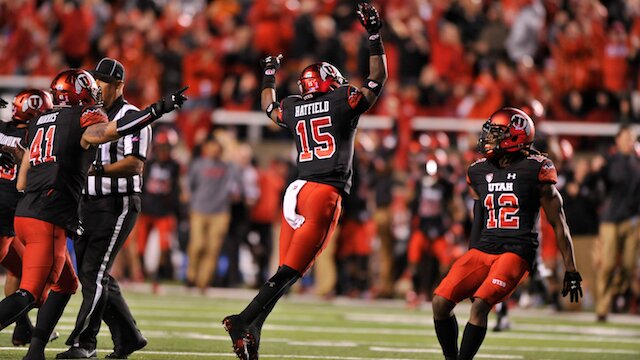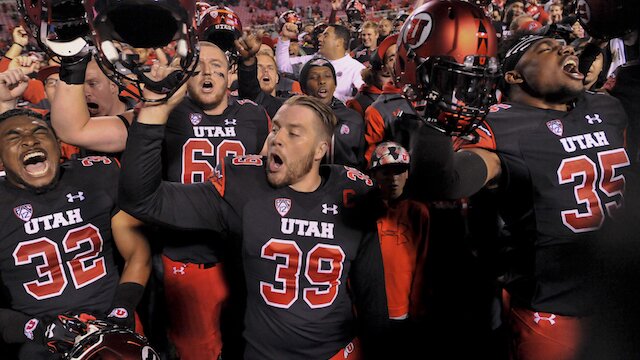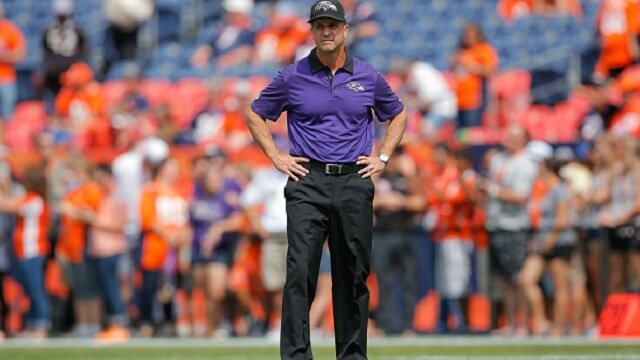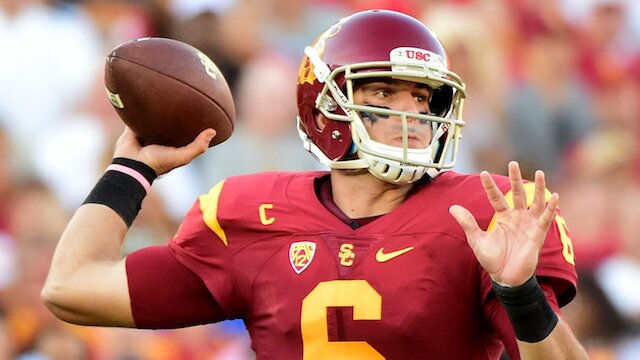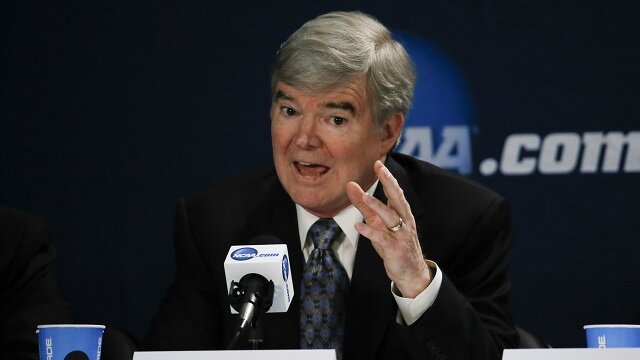
If there is one thing you can count on when it comes to the NCAA, it’s that they are going to be on the wrong end of a scandal.
Time and again, the NCAA has shown themselves to be a hapless governing body when it comes to overseeing college athletics. It’s long been suspected that Mark Emmert and the NCAA were merely making it up as they go when it comes to enforcing their preposterously convoluted and often illogical rulebook. But now we may have proof of it after emails exchanged between enforcement officials regarding the investigation into Reggie Bush and the USC Trojans.
USC came into the NCAA’s crosshairs when evidence came to light that Bush, a Heisman Trophy winning running back and key piece to the Trojans’ national title run in 2005, received impermissible benefits during his time at the school. The NCAA ultimately determined that the school had shown a “lack of institutional control” and were forced to vacate wins, including their national title, and were given sanctions including a two-year postseason ban and heavy scholarship restrictions which the program is just now moving past.
At the time, the punishment was regarded as being extremely heavy-handed and a serious overreach by the NCAA. Many were disappointed in USC AD Pat Haden for not fighting against the decision harder, instead of rolling over and taking it. Everyone, outside of hardcore USC haters and the NCAA itself, saw the decision as a massive abuse of power and another example of the NCAA’s haphazard decision making and punishment system.
It’s a reputation that they have spent years earning and seem to only cement that reputation with each passing scandal. Since trying to kill the SMU Mustangs’ football program, the NCAA has seemingly used a random “Wheel of Punishment” to come down on different programs, with the process seemingly different each time and no discernible pattern of enforcement emerging. Whether it was the drawn out and unethical investigation into the Miami Hurricanes, the illegally overreaching punishment handed down to the Penn State Nittany Lions, or the preposterously pending decision on the North Carolina Tar Heels, who have publicly admitted to widespread academic fraud, the NCAA is a clown car of oversight.
And now we have further proof. Stemming from the defamation lawsuit brought by former USC running backs coach Todd McNair, who took the brunt of the fall for the Bush scandal, a number of emails that were exchanged between members of the NCAA Committee on Infractions who were directly overseeing the USC investigation have been unsealed and made public. In them, the members of the Infractions Committee display an alarming bias towards the Trojans and McNair, in particular, as they seemed more interested in sending a message than finding the truth of what happened.
Committee liaison Shep Cooper reportedly told the committee that McNair was “a lying morally bankrupt criminal, in my view, and a hypocrite of the highest order,” which went to show where the committee’s minds were going into the whole thing.
Current NCAA Committee on Infractions member Rodney Uphoff felt that USC needed a “wake-up call” because of their decision to hire Lane Kiffin to replace Pete Carroll. Kiffin’s connection to the program during the time of the improper benefits apparently rubbed the committee members the wrong way and they wanted to respond by sending a message that “doing things the wrong way will have serious consequences,” according to Uphoff despite there being no evidence of Kiffin’s involvement.
Uphoff went on to push the committee towards heavier punishment of USC despite discrepancies in the testimony of a key witness, arguing against upholding “too high of a burden of proof” against USC and even defended the inconsistent testimony, since it backed up his agenda.
Another committee member, Roscoe Howard, joked about the hiring of Kiffin in another email and used it to support the verdict of a lack of institutional control, once again without evidence linking Kiffin to the improper benefits.
In later emails, some of the committee members seem to realize that their conversations are more than a little inappropriate, though their concern was a bit misplaced. Members were citing worry about making these comments via their official emails not because what they were saying was unethical and wrong for people in their position, but because they weren’t clear on the public records laws in each committee members’ state and feared they could eventually be made public. Their foresight was spot on it turned out, though their concern about getting caught outweighing actually doing something wrong is somewhat troubling.
The NCAA fought very hard to keep these records sealed, and for good reason. It’s yet another black eye for college athletics’ governing body in a time where they are woefully lacking when it comes to their public perception. The biggest conferences seem to drift closer and closer to autonomy from the NCAA, forming their own legislative body to handle matters for themselves and issues like this only make their case for doing so stronger.
At the very least, these emails show an incredibly biased committee that handed down tougher-than-necessary infractions in order to flex their muscle over USC and send a message to the rest of the colleges under the NCAA’s watch. At worst, they are an indictment of the NCAA which forces their member schools to jump through hoop after hoop to avoid committing one of thousands of insignificant infractions while they stumble about blindly when looking to administer some form of authority.
These emails certainly aren’t enough to bring down the NCAA on its own, but it’s yet another log for the fire that threatens to burn the entire system to the ground. If the NCAA continues to act with petulant impunity, feeling as if they are untouchable in their actions, they will face a day of reckoning sooner rather than later.
If Emmert and the NCAA want to save even the slightest bit of face in this situation, serious reform must take place. Set policies and procedures for the investigation of and punishment for NCAA infractions has to be set and the NCAA has to start following them while working with an unprecedented level of transparency moving forward.
Without that, the NCAA’s credibility will continue to dwindle down to nothing and the governing body of college athletics will crumble under the weight of their own mistakes.
You can follow Tyler Brett on Twitter @ATylerBrett, on Facebook and on Google.


